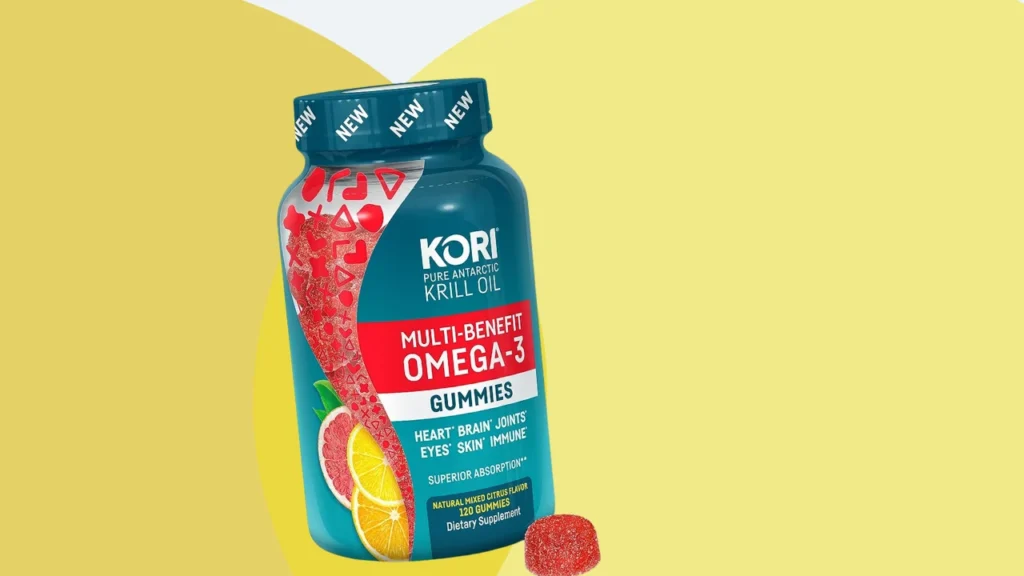Childhood is a critical period for cognitive development, particularly because a child’s brain is experiencing considerable growth and rapidly maturing. In recent years, scientific research has shed light on the significant impact that omega 3 fatty acids have on brain development in children, especially among the young. Omega 3 fatty acids are essential nutrients that play a crucial role in the function and health of our brain. Their potential to boost learning skills in children has captured the attention of parents, educators, and researchers alike. This article explores the intricate relationship between omega 3 fatty acids and children’s ability to learn skills. It delves into the underlying mechanisms, benefits, and practical implications of omega 3 for children and how it can enhance their learning skills and transform their lives.
Fatty acids and omega 3 for children
Omega 3 fatty acids are a type of polyunsaturated fat that our bodies need but can’t produce on their own. These types of beneficial fatty acids are primarily found in fatty fish, such as salmon, mackerel, and sardines. They are also present in plant-based sources like flaxseed, chia seeds, and walnuts. There are three main types of omega 3 fatty acids: alpha-linolenic acid (ALA), eicosapentaenoic acid (EPA), and docosahexaenoic acid (DHA). ALA is mainly found in plant sources. In our discussion of omega 3 fatty acids for brain health, this article will focus on EPA and DHA, which are commonly found in marine foods.
You May Also Like:
Omega 3 and Triglycerides: Unlocking the Powerful Link to Lowering Levels for Optimal Health
Brain health and omega 3 for children
Throughout childhood, especially in its earliest stages, a child’s brain undergoes rapid growth and development. This period of neurodevelopment is marked by intricate structural changes and the development of neural networks. Omega 3 fatty acids, specifically DHA, play a critical role as a major structural component of brain cell membranes, essential for neuron function and communication. DHA is highly concentrated in the brain and the retina, underscoring how important this element is for cognitive and visual functions. Research has shown that omega 3 for children is linked to improved cognitive abilities, including learning, memory, and a child’s attention span.

Enhancing learning skills with omega 3 for children
Several mechanisms in the brain are involved in the enhancement of a child’s learning skills.
Neuronal Membrane Fluidity: Omega 3 fatty acids contribute to maintaining the fluidity of neuronal membranes, which are essential for efficient signaling between brain cells. Omega 3 fatty acids promote the ability of brain cells to form new connections and adapt to changing environments. This synaptic plasticity is a key mechanism supporting learning and memory processes.
Neuroinflammation Regulation: Omega 3s possess anti-inflammatory and antioxidant properties that can protect brain cells from damage caused by inflammation and oxidative stress. Chronic inflammation in the brain can impair cognitive function and hinder a child’s ability to learn. By exerting these anti-inflammatory effects, omega 3s help boost overall cognitive health and enhance optimal learning potential.
Neurotransmitter Regulation: Omega 3 fatty acids influence the production and activity of neurotransmitters, which are chemical messengers that transmit signals between neurons. These neurotransmitters play a pivotal role in mood regulation, attention span, and the capacity to learn. Omega 3s help to maintain an appropriate balance of neurotransmitters.
Improving classroom performance with omega 3 for children
Studies have demonstrated that the benefits of omega 3 for children can be measured through various means.
Improved Concentration and Attention Span: Adequate intake of omega 3 fatty acids has been shown to improve a child’s ability to concentrate and allow them to pay attention for longer periods of time. The nutrients in omega 3 fatty acids support the brain’s ability to focus on tasks and process information, potentially making it easier for a child to learn.
Enhanced Memory Formation: Omega 3 fatty acids support the formation and maintenance of synapses—the connections between neurons. This synaptic plasticity is fundamental to the formation and retention of memory. Memory is vital to a child acquiring new knowledge and skills.
Cognitive Flexibility and Problem-Solving Abilities: Studies have linked omega 3 fatty acids to improved cognitive flexibility and problem-solving skills. Children with higher levels of omega 3 may show a greater adeptness at adapting to changing situations and approaching challenges with more creativity compared to their peers.
Language and Communication Skills: Omega 3s have been associated with language development and communication skills in children. The nutrient DHA is essential for the growth of brain regions responsible for processing language. This may allow a child to have a better aptitude for learning languages.
Inflammation and Oxidative Stress: Omega 3s have anti-inflammatory and antioxidant properties that can protect brain cells from damage caused by inflammation and oxidative stress. Oxidative stress may contribute to brain fog and other cognitive impairments. As such, the protective mechanisms of omega 3s significantly contribute to a child’s overall cognitive health and potential to learn.

How to obtain optimal levels of omega 3 for children
To harness the potential benefits of omega 3s for optimal learning, it’s important to include foods rich in omega 3s in a child’s diet. Fatty fish such as salmon, mackerel, sardines, and trout are rich sources of DHA and EPA. For children who may not consume fish, plant-based sources of omega 3s include flaxseeds, chia seeds, walnuts, and hemp seeds. These foods provide ALA, which the body may convert to DHA and EPA, although the conversion may not always be efficient.
It’s recommended that children eat two servings of fatty fish a week. While obtaining essential nutrients from whole foods may be preferred, children can sometimes be picky eaters and might turn their noses up at fish. In such cases, parents may want to consider providing omega 3 supplements for their children.
Kori Krill Oil: a top choice of omega 3 for children
Kori Krill Oil delivers omega 3s in their most natural phospholipid and triglyceride forms, closely resembling the benefits of consuming a healthy fish diet. Phospholipids offer superior absorption; fish oils and most vegetarian sources lack this natural phospholipid form. Krill, tiny ocean crustaceans, are at the start of the marine food chain, offering immense nutritional value. Advanced harvesting operations help preserve the quality of the krill oil. Kori Krill Oil is derived from non-GMO sources and contains no artificial flavors or synthetic colors.
Kori Pure Antarctic Krill Oil gummies are the first of their kind to boost omega 3 levels while offering a natural mixed citrus flavor. These gummies, which have the texture and taste of candy, are likely to be a hit with children. Each serving provides 125mg of krill oil, containing 30mg of EPA and DHA.

Omega 3 for children facilitates enhanced learning
Omega 3 fatty acids hold immense promise for their potential to boost learning skills in children. Studies have shown that there is an intricate link between these essential nutrients and brain development in children. Omega 3 fatty acids, particularly DHA and EPA, possess the capacity to enhance childhood learning skills. Their roles in neural connectivity, mitigating inflammation, and protecting against oxidative stress make them crucial contributors to cognitive development. By incorporating omega 3s into a child’s diet, parents and caregivers can create an environment that is conducive to unlocking a child’s learning potential.
This is why it is vitally important to incorporate omega 3-rich foods into a child’s diet. By understanding the mechanisms underlying the impact of omega 3s on neuronal function, parents and educators can make informed choices, ensuring these essential nutrients are included in a child’s diet. While omega 3 fatty acids are crucial in brain development, a supportive environment, quality education, and regular physical activity equally shape a child’s ability to learn.
For further reading:
Cleveland Clinic: Omega-3 fatty acids and the important role they play
Harvard Health: Do omega-3s protect your thinking skills?
Forbes: Brainiac foods contain nutrients believed to support brain health
New York Times: Brain power tied to omega-3 levels
CNN: MIND diet for brain health shows surprising results in clinical trial
Important Note: The information contained in this article is for general informational purposes only, and should not be construed as health or medical advice, nor is it intended to diagnose, prevent, treat, or cure any disease or health condition. Before embarking on any diet, fitness regimen, or program of nutritional supplementation, it is advisable to consult your healthcare professional in order to determine its safety and probable efficacy in terms of your individual state of health.
Regarding Nutritional Supplements Or Other Non-Prescription Health Products: If any nutritional supplements or other non-prescription health products are mentioned in the foregoing article, any claims or statements made about them have not been evaluated by the U.S. Food and Drug Administration, and such nutritional supplements or other health products are not intended to diagnose, treat, cure, or prevent any disease.

